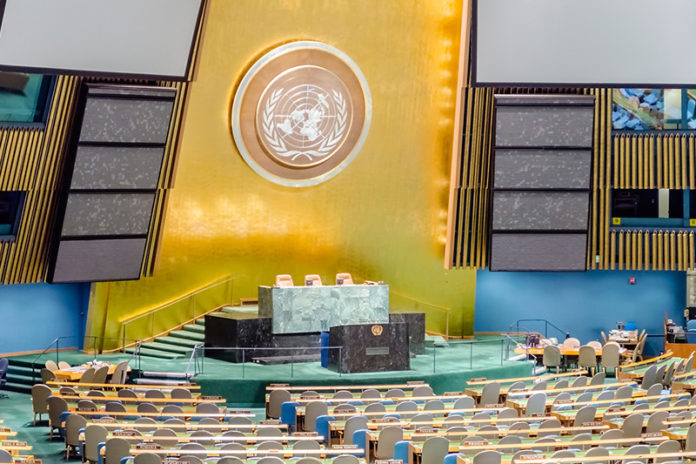When looking to “drain the swamp” of meddling bureaucrats and global do-gooders, there is perhaps no better place to start than on the banks of the East River in New York, home to the headquarters of the United Nations. And, with the United States’ newest U.N. Ambassador, former South Carolina Governor Nikki Haley, sworn into office, there is no better time to start than now.
Four years ago, then Secretary of State John Kerry signed the Arms Trade Treaty (ATT), an international agreement regulating the sale, transfer, and export of conventional weapons, including “small arms and light weapons” – meaning virtually every firearm on the market. Ostensibly, the treaty was to prevent the “human suffering” attributed to the international trade in “illicit” arms. However, rather than promoting “world peace” and protecting citizens of member nations from the scourge of “illicit” firearms, the multi-year U.N. effort was a thinly-veiled attempt to engage in gun control both internationally and domestically within member nations.
Under the decisive leadership of the Bush Administration’s then-Undersecretary of State (and, later, acting Ambassador to the U.N.) John Bolton, the U.S. made clear it would neither support nor allow to be adopted any international instrument that directly or indirectly infringed any constitutionally-protected rights. Kerry’s signature on the ATT in 2013 reversed this approach, and instead committed the U.S. government — as a signatory — not to act “contrary to” the ATT’s terms, even if those actions conflicted with the interests and constitutional rights of U.S. citizens, and not withstanding that the Senate had not ratified the treaty itself.
Now that Obama is out of office and the fate of the treaty lies in the hands of a pro-Second Amendment President, a U.S. Senate with a strong pro-Second Amendment majority, and a pro-Second Amendment U.N. Ambassador, we should immediately reverse the course set by the Obama Administration, which placed America’s interests in the hands of an unelected global bureaucracy historically at odds with our commitment to an individual’s inherent right to self-defense.
President Trump should waste no time in “unsigning” the ATT.
Such a move by Trump, officially backing away from a treaty signed by a previous administration but not ratified by the Senate, would be bold, but not without precedent. For example, in 2002, Bolton sent a letter to the U.N. formally rescinding America’s involvement with the Rome Statute of the International Criminal Court, which had been signed by President Clinton two years before but never ratified by the Senate. “[T]he United States does not intend to become a party to the treaty,” wrote Bolton. “Accordingly, the United States has no legal obligations arising from its signature on December 31, 2000.” The move angered many on the Left who thought America should surrender its sovereignty in favor of “international justice,” but the Bush administration’s reversal proved to be in the best interests of the nation in the long-term.
In addition to putting America’s interests first, unsigning the treaty would also send a shot across the bow of the U.N., signaling the new Administration is making a clean break with its predecessor. This move would be win-win that aligns Trump with the pro-Second Amendment majorities in the House and Senate, while striking at the heart of one of the U.N.’s pet projects.
After eight years of an Obama Administration that did everything it could to undermine the sovereignty of the United States and the integrity of the Constitution, especially the Second Amendment, America must send a strong message that it will no longer tolerate outside meddling — directly or indirectly — in the fundamental human right of self-defense, and the guaranteed right to keep and bear arms set forth in our Constitution. Trump seems well up to the task, and is surrounded by those who will help him succeed.
































